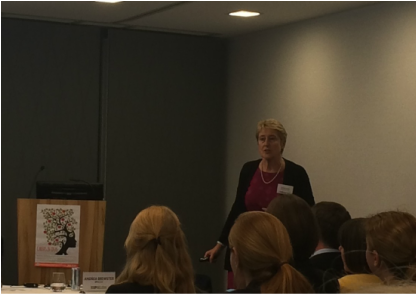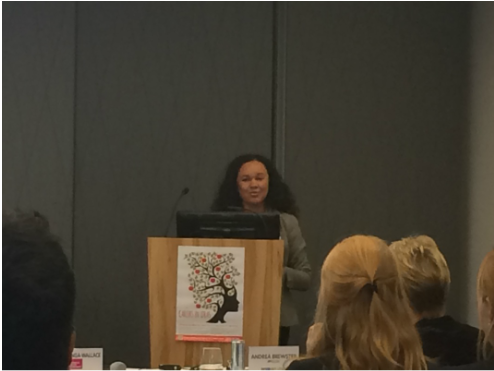Yesterday’s discussion on ethnic diversity in the IP professions (amusingly titled “The Unbearable Whiteness of IP“) raised many interesting points about why IP law may not be attracting and/or retaining BAME (Black, Asian and Minority Ethnic) talent, and what we can do to change this. (The reason why we need to change this is simple: diversity drives innovation).
Keynote speaker Maria Petnga-Wallace explained that studies show BAME employee attrition rates in the legal sector are high. This suggests that organisations in the legal sector may lose BAME talent because the workplace is perhaps not as inclusive and welcoming as it could be, and/or because there are no BAME role models (e.g. employees in senior roles or at management/board level). On the plus side, one in four children in school in the UK are from BAME backgrounds, so there is a huge pool of talent available for the IP professions to select from.
A quick survey of the audience suggested very few IP organisations monitor the ethnic background of job applicants. Maria explained that it is important for IP organisations to monitor the ethnic background of (a) job applicants, (b) applicants who are short-listed for interview, and (c) applicants who are hired, because this provides useful information for an organisation to determine where in their hiring process they may lose BAME talent as a result of unconscious bias. For instance, if an organisation notices that the percentage of BAME applicants for a job is low, perhaps the image portrayed by the organisation unconsciously discourages people from BAME backgrounds from applying? Similarly, if an organisation notices that the percentage of BAME applicants who are hired is considerably lower than the number of BAME applicants, perhaps the interview process needs to be analysed. One panellist agreed and noted that simply moving away from interviews conducted by two white men to interviews conducted by a diverse panel radically improved the diversity of new hires.
Lesley Evans, Chief Executive at Haseltine Lake LLP, provides a brief report on last night’s IP Inclusive event in London.
Lesley writes:
At an event on November 24th to mark the first anniversary of the launch of the IP Inclusive Charter for Equality, Diversity and Inclusion, an audience of interested practitioners from many different parts of the IP professions came together to listen to a panel discussion on a topic that is perhaps overdue for public debate and consideration within the IP world.
The event was generously hosted by Charter signatory Carpmaels & Ransford, and partner David Wilson welcomed attendees and set the scene for an open and positive exchange.
It was clear that the larger law firms are leading the way with impressive inclusion programmes to broaden access and to nurture and promote BAME talent through mentoring and internal sponsorship. For businesses in the patent and trademark attorney sectors the challenge is to interpret these initiatives for a generally smaller workforce and scale of operation – but there were plenty of practical, scaleable ideas and tips from the panel.
After the panel session, attendees were able to discuss the topic informally and to share news and ideas from their own organisations about new approaches to recruitment and to career progression structures. The most talked-about issue was a statistic presented by Maria: one in five UK students studying STEM subjects in UK universities are from BAME backgrounds. It was apparent that this presents great opportunities for all sectors of the IP professions to access this pool of early-stage talent and to grow it though their organisations to create significantly more diverse and inclusive businesses in years to come.
Lesley Evans
Haseltine Lake


